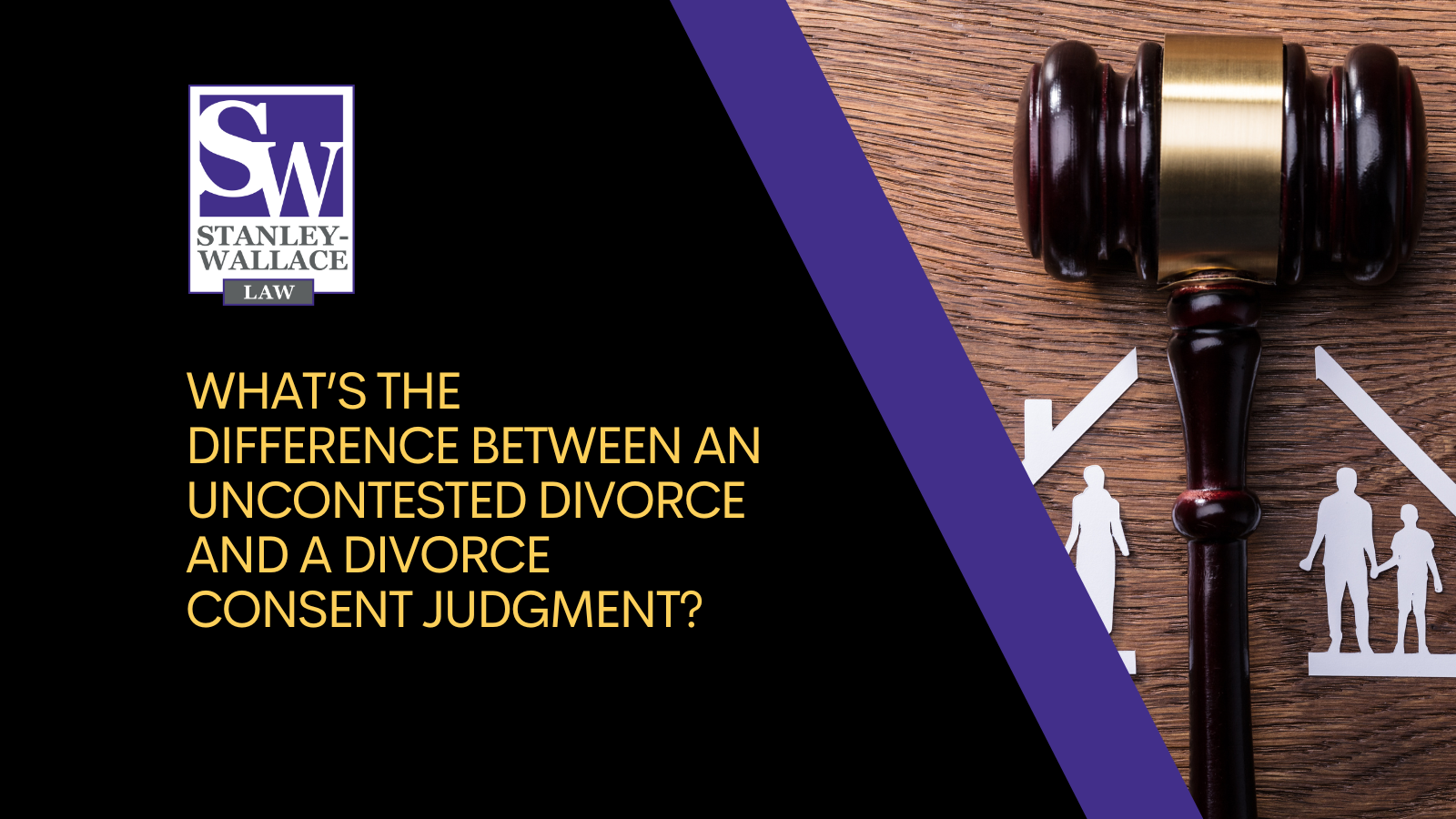Often, when we think about divorce, we have a mental image of a long, messy process involving court hearings and acrimonious disputes between the two exes.
In reality, the statistical majority of divorce cases in Louisiana come to an agreement. Those in which the parties come to an agreement at the very beginning are referred to as “uncontested divorces.” The opposite is known as a “contested divorce,” and usually involves a trial and some sort of decision made by a judge.
However, the differences don’t stop there. Uncontested divorces typically involve a document known as a “consent judgment” or “stipulated decree”. Contested divorces force a judge to come to a decision and render a “judgment” or “considered decree.” So what’s the difference between all these types of divorce?
At Stanley-Wallace Law, we’ve spent the last seven years helping Louisiana couples through divorces, whether they’re simple or messy. Read on to hear from our team of family law attorneys about the difference between uncontested divorce, divorce consent judgments, and contested divorce.
UNCONTESTED DIVORCE
Whatever the circumstances of your divorce, if you and your ex agree on all the terms of your divorce, you can avoid a trial altogether and get what’s known as an “uncontested divorce.”
According to UCCJEA, for purposes of determining non-emergency initial custody, the State of Louisiana has jurisdiction only if: “this state is the home state of the child on the date of the commencement of the proceeding or was the home state of the child within six months before the commencement of the proceeding and the child is absent from this state but a parent or person acting as a parent continues to live in this state…” La. R.S. §13:1813 (A)(1). While there are several, complicated exceptions to this rule – the home state of the child typically controls which state will hear the initial custody case. In our example above, if you live in Louisiana, and the other parent takes the child to Mississippi to live – even if it is only a few miles away – if you want to ensure that the custody case is heard in Louisiana, you would need to file for custody in a Louisiana court before the child has lived in Mississippi for six months. Otherwise, if that child lives in Mississippi for longer than six months, Mississippi would be the home state of the child and Mississippi would likely have jurisdiction over the initial non-emergency custody matter.
UCCJEA can be complicated and some exceptions do apply. Make sure you consult with an experienced child custody attorney to determine the proper jurisdiction for your child custody matter.


